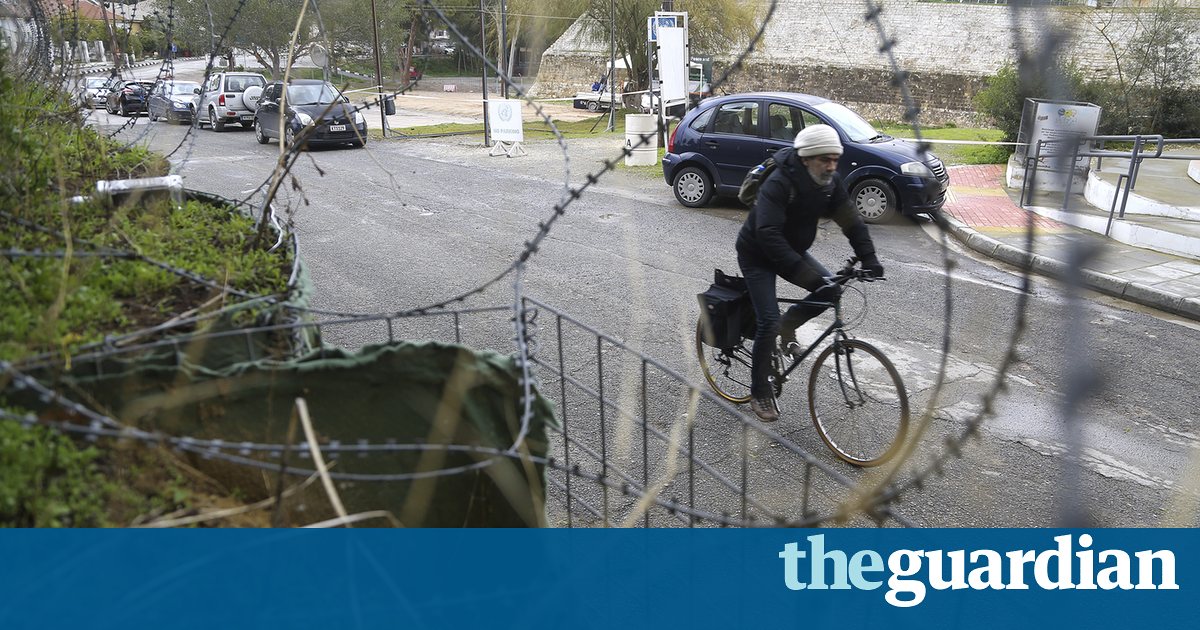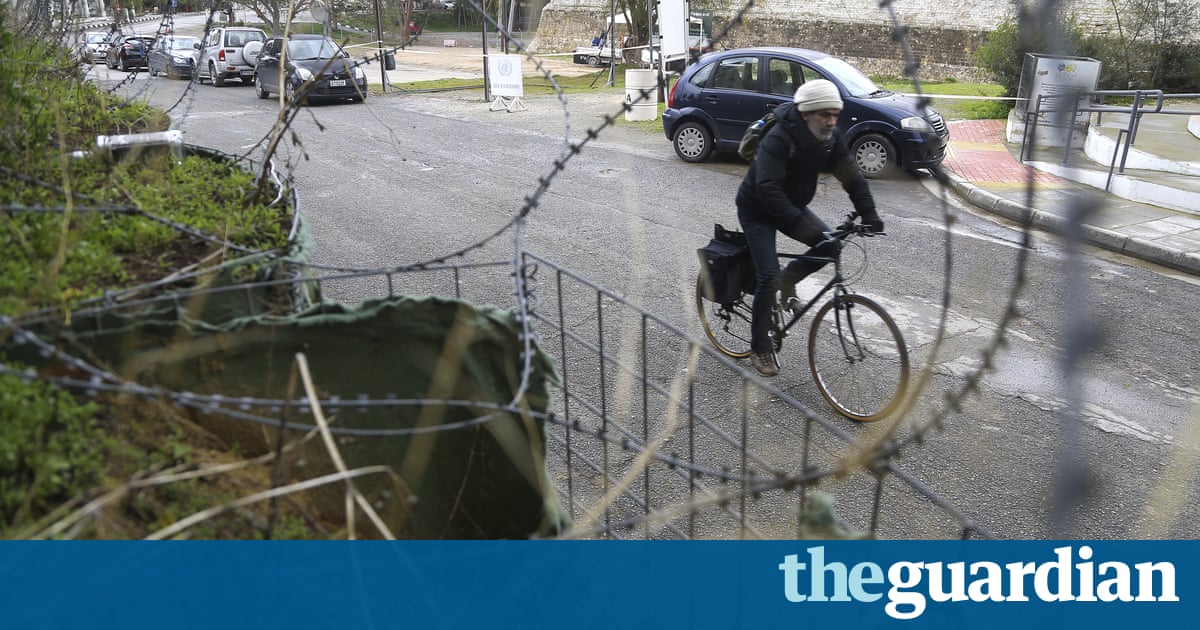Cyprus’s Greek and Turkish leaders edge closer to ending conflict

Talks to reunite island reaches critical juncture in Geneva as leaders tackle question of territorial realignment

One of the wests most intractable disputes has edged closer to resolution with the leaders of Cypruss Greek and Turkish communities discussing the critical issue of territorial realignment on the third day of peace talks in Geneva.
As the latest push to reunite the island reached a critical juncture, Nicos Anastasiades and Mustafa Aknc moved to the make-or-break issue of territorial trade-offs in an envisioned two-state federation.
In a country where more than 200,000 people lost their homes, territory and the boundaries both states would have is key to a solution. For the first time, away from Cyprus in the psychologically less charged atmosphere of Switzerland, the two leaders pored over maps and tackled the thorny question of land swaps and percentages on the war-torn island.
We have dealt with some of the most difficult issues, said Espen Barth Eide, a former Norwegian foreign minister who is overseeing the negotiations at the United Nations headquarters in Geneva. We have touched upon almost all of them, we have solved many of them and we are close to resolving some other issues.
Earlier, Eide had described the discussions as the moment of truth. But he also warned there was still work to do amid growing signs of slippage in the timetables the two leaders had originally agreed to keep.
As politicians, including the British foreign secretary, Boris Johnson, prepared to fly in for a landmark conference that will see the UK, Greece and Turkey the islands three post-colonial guarantor powers also join talks on Thursday, the prospect of an immediate breakthrough dimmed.
Delegates instead spoke of an open-ended process, one in which the clock would stop if necessary. We recognise that issues that have taken years to address cannot be solved in a day, one said. Negotiations may well extend into the weekend. We may adopt that age-old conference policy of stopping the clock. Others admitted that, on account of the slow pace of progress, they had not booked return flights out of Geneva.
If the contours of a territorial plan are agreed, a deal could be reached that will be put to referendum later this year.
For Anastasiades, who heads the islands internationally recognised Greek-controlled south, this is by far the most delicate stage of negotiations that are highly emotive among his own constituency.
Although Cypriots from both sides of the ethnic divide rallied in support of a solution on Tuesday braving icy temperatures to sing in the name of peace near the UN-patrolled buffer zone that divides the capital Nicosia the leader also faces considerable opposition from a cohort of rejectionist politicians.
Six of the eight parties represented in Cypruss parliament oppose a settlement, mostly on the grounds that no deal would ever properly compensate those who lost property and homes when Turkey invaded in 1974. Responding to a right-wing attempt to unite the island with Greece, the Turkish army seized 37% of its territory before a breakaway state was unilaterally declared in 1983.
Anastasiades, who sees this as the last chance to reunite Cyprus, now has the daunting task of convincing the Turks to surrender enough territory to allow 90,000 refugees to return to their homes a feat that would permit him to not only sign up to a solution but ensure it was endorsed when put to referendum.
To do this he must meet his interlocutors half way. Under Aknc, the Turkish Cypriots have signalled they would be prepared to give up territory under their control but only if granted more power-sharing rights, including a rotating presidency.
That is anathema to Greek nationalists who argue that as the majority population they should exercise more power. The more Greek Cypriot refugees go back, the less financing a solution will need, a senior Greek Cypriot diplomat told the Guardian. A settlement could cost anywhere in the region of 25bn. If a solution is not viable and collapses, what happens then?
Competing maps presented by the leaders are expected to be seen and studied by only a handful of aides working in the respective negotiating teams before being stored in a UN vault, Eide told reporters invoking the sensitivity of the diplomatic task ahead.
The framework of an agreement could be propelled, he said, if the foreign ministers of Cypruss three guarantor powers assented on Thursday to post-unification security arrangements. Turkey has maintained an estimated 40,000 troops on the island since 1974. A far smaller contingent has also been stationed on the island by Athens, which now says the guarantor system should be dismantled in sharp contrast to Ankara, which insists troops must stay.
I really think, without over-dramatising what is happening in Geneva, that this is the very last chance to see the island being recomposed in a normal way, said the European commission president, Jean-Claude Juncker, who is also expected to participate in Thursdays conference.